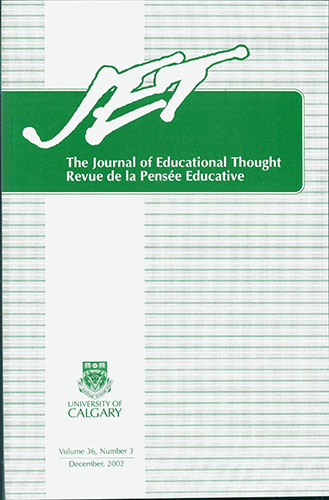Colliding Rights in the Schools: Trinity Western University v. The British Columbia College of Teachers
DOI:
https://doi.org/10.55016/ojs/jet.v36i3.52698Abstract
The Supreme Court of Canada's 2001 adjudication of the Trinity Western University v. British Columbia College of Teachers case established a framework for resolving disputes involving colliding Canadian Charter of Rights and Freedoms rights. The Court held that administrative bodies may consider discriminatory practices, but that their decisions must be fully and correctly justified using actual evidence, and give due regard to religious rights. The Court ruled that religious belief alone may not be the basis to deny the right to a government benefit or to full participation in Canadian society. However, the Court broadened the application of the Charter by allowing administrative tribunals to consider Charter values in making rulings about institutions that are not subject to Charter scrutiny but do prepare professionals to serve in the public square. The paper concludes by discussing the implications of this decision for a pluralistic democracy.
Downloads
Downloads
Published
Issue
Section
License
The Journal of Educational Thought retains first publication rights for all articles. The Journal grants reproduction rights for noncommercial educational purposes with the provision that full acknowledgement of the work’s source be noted on each copy. The Journal will redirect to the appropriate authors any inquiries for further commercial publication of individual articles. All authors wishing to publish in JET will be asked to fill in and sign a Consent to Publish and Transfer of Copyright agreement.
Authors must affirm that any submission to JET has not been and will not be published or submitted elsewhere while under considration by JET.

